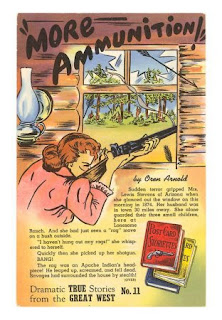
Top of the morning to ye! Do you think the Little Dude will be okay if he doesn’t wear green because he’s half Irish? Better not take any chances.
After years of writing, Jenny Gardiner became an overnight sensation when her American Title III winning manuscript was published by Dorchester. Just a month or two after its release, Sleeping With Ward Cleaver went into its second printing!
Please welcome, Jenny on St. Patrick’s Day!
Chica Lit: How did you come up with the idea for “Sleeping With Ward Cleaver”?
Jenny:I came up with the title, first, and then had to write a book around it. I think we were sitting around talking about some guy who was a bit of a stuffshirt and I thought “man, he’d be like sleeping with Ward Cleaver!” And the more i thought about it the more I loved how that sounded.
Chica Lit: Talk about how it went from an American Title Winner to a published book!
Jenny: It was a pretty amazing ride. The American Title contest was hugely time-consuming–it took me away from writing quite a bit– but it was a wonderful way to market my book even before it existed in the marketplace. One of the neat things about the contest is that it’s expedited to market at that point, because it is timed to come out before the next year’s AT contest is finished. So not quite the wait that happens with a normal contract, when it can be a year and half or more till the book comes out. I had such a great experience working with everyone at Dorchester–my editor Chris was fabulous, Erin, the publicity director, has been terrific, Brooke, the sales vp I’ve worked with enormously helpful. It’s been a very positive experience.
Chica Lit: What did you do on the day it was released?
Jenny: Uh, panic? No, seriously, shortly before the release date I had a little bit of anxiety about the impending arrival–it reminded me of just prior to the birth of my first-born, when it dawned on me that there was no turning back! On the actual day of the release I spent much of the day fielding emails, working on blogs I’d been guesting on, etc. That first week was crazy busy–I flew down to Florida for my first signing and to do a TV segment on a syndicated morning show. I was sick with the flu (Murphy’s Law!) but just kept going. I got back and had tons of cooking to do for my launch party, which was that weekend. The party was such fun–total whirlwind, but everyone had a fantastic time. The first couple of weeks were insanely busy, but all good stuff!
Chica Lit: In “Ward Cleaver”, you go from a laugh-out loud scenario to a real heart-wrenching scene. How did you manage it?
Jenny: I think life can be like that so much. Highs to lows in the blink of an eye. And I think laughter is so therapeutic, it can help to soften a lot of painful times. I wanted to make a protagonist who was willing to laugh at herself and at some of the preposterous situations she was finding herself in, but I also wanted her to really delve into her thoughts to try to analyze what the hell was going on and why. Otherwise how could she figure out how to fix things?
Chica Lit: What has been the reaction from your readers?
Jenny: I am thrilled to say that the reactions from readers has been phenomenal. So many women relate to Claire on so many levels. Readers really appreciate that sense that they’re not alone in feeling the way Claire feels. And many readers have said it’s reminded them to appreciate their spouse. One even said she went out and bought new sexy lingerie after reading the book 😉 . The funniest email I’ve gotten is from a woman who asked me to remove the radio transmitter from her brain as well as the cameras from her household–she was so certain that was the only way I could have had such insight into her life!
And the other wonderful thing have been so many readers saying they didn’t want the book to end.
Chica Lit: Do you think that wives and mothers today are more satisfied or less satisfied with their lives than those of the previous generation?
Jenny: A lot of what Claire goes through is so universal, and I think there is a thread of that universality that runs throughout the ages. Now of course many women have the added element of work outside the home makes things harder on one level, but then again, a hundred years ago women were working far harder physically than now, having to make their clothes and everything was from scratch and life was much much harder.
I think now women are far more comfortable speaking up when they’re not happy. It might take a while, but given enough impetus, they’ll speak their mind!
Chica Lit: One of the things I really liked about “Ward Cleaver” was the idea of the woman’s midlife crisis (because all you hear about are the men & their midlife crisis). Was this something that you set out to explore when you started writing the book?
Jenny: I was noticing with so many women that during their late 20’s and 30’s, women are sort of drowning in that fog of motherhood. They totally lose themselves because they’re devoting 100% to caring for everyone and everything in their lives. And then the kids become older and more self-sufficient and women discover themselves again. Often they’ve give up careers to stay home with the kids, so they have to start figuring out who they are, and have this great chance to re-invent themselves, sort of a mid-life renaissance. It’s almost as if men have a mid-life crisis that’s more destructive but women have a mid-life re-birth that is constructive. So I did want to explore that. The other thing that seems to happen is while women are in this growth phase, at the same time their spouses are often very entrenched in their lives, sort of in a change-averse mode. So the situation is ripe for clash.
Chica Lit: Congratulations on going to a second printing! What’s coming out next?
Jenny: Thanks so much! That was a wonderful milestone to reach. My agent is currently shopping my book, “Mary Kate Goes Over the Falls,” about a woman trapped in an abusive marriage who goes out to pick up her husband’s dry cleaning and instead picks up a handsome hitchhiker, whose lure reminds her of how the lip of Niagara Falls is said to tempt people to jump into the falls. The two embark on a road trip of self-discovery, en route to Niagara Falls. It’s a sweet story with quirky, fun characters. I’m hoping we’ll have news on that soon. In the meantime I’ve got several other books in various states of revision, so fingers crossed something will be forthcoming soon–keep an eye on my website (http://www.jennygardiner.net/) and also on the group blog I share with five other wonderful debut authors called, The Debutante Ball (http://www.thedebutanteball.com/).
Thanks so much for having me, Mary!
Chica Lit: You’re welcome!
 More Ammunition, Ad for Western Pulp from Art.com
More Ammunition, Ad for Western Pulp from Art.com






